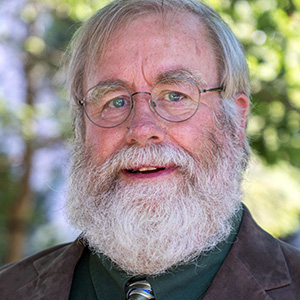Things to look for in a thesis adviser
On the scale of human interactions, the relationship between a graduate student and his or her thesis adviser (a.k.a. major professor) lies somewhere between that of roommates locked into a long-term lease and a marriage.
Finding a good match among the faculty typically is the single most important determinant of the quality of a graduate-school experience. It is therefore critical that entering students get to work early and diligently to learn all they can not only about potential mentors and their research programs but about themselves.
Ask the following questions:
- Is this potential adviser someone you respect, someone you would like to model yourself after?
- Where are the potential adviser’s former students? Do they tend to transition to the types of postgraduate and professional opportunities that appeal to you?
- What kinds of skills are you likely to develop in this lab?
- Do students from this lab get their work published in quality journals?
- What is the lab group like? Are they hard-working and enthusiastic? Do they get along with one another?
- What do you need from a mentor? What are your strengths and weaknesses?
- Are you likely to respond well to this person’s particular training and managerial style?
Notice that the list does not ask questions about the potential adviser’s area of research. The biggest mistake a student can make in selecting a major professor is ignoring the signs of a potentially poor match because he or she is enamored of the faculty member’s area of research. A research project is a tool, a vehicle for transforming curious and committed students into capable, independent research scientists whose skills are translatable and evolving. As long as a student finds a project interesting and challenging, labels matter little in the long run.
A student–mentor relationship based on mutual respect, good communication and shared expectations offers a richness and depth that will animate your entire career.
Enjoy reading ASBMB Today?
Become a member to receive the print edition four times a year and the digital edition monthly.
Learn moreFeatured jobs
from the ASBMB career center
Get the latest from ASBMB Today
Enter your email address, and we’ll send you a weekly email with recent articles, interviews and more.
Latest in Careers
Careers highlights or most popular articles

Upcoming opportunities
ASBMB's PROLAB award helps graduate students and postdoctoral fellows spend up to six months in U.S. or Canadian labs.

From humble beginnings to unlocking lysosomal secrets
Monther Abu–Remaileh will receive the ASBMB’s 2026 Walter A. Shaw Young Investigator Award in Lipid Research at the ASBMB Annual Meeting, March 7-10 in Washington, D.C.

Chemistry meets biology to thwart parasites
Margaret Phillips will receive the Alice and C. C. Wang Award in Molecular Parasitology at the ASBMB Annual Meeting, March 7-10 in Washington, D.C.

Decoding how bacteria flip host’s molecular switches
Kim Orth will receive the Earl and Thressa Stadtman Distinguished Scientists Award at the ASBMB Annual Meeting, March 7–10, just outside of Washington, D.C.

Defining JNKs: Targets for drug discovery
Roger Davis will receive the Bert and Natalie Vallee Award in Biomedical Science at the ASBMB Annual Meeting, March 7–10, just outside of Washington, D.C.

Upcoming opportunities
No matter where you are in your career and what future path you aspire to, everyone needs leadership skills. Join ASBMB for practical strategies for building and practicing leadership skills.

